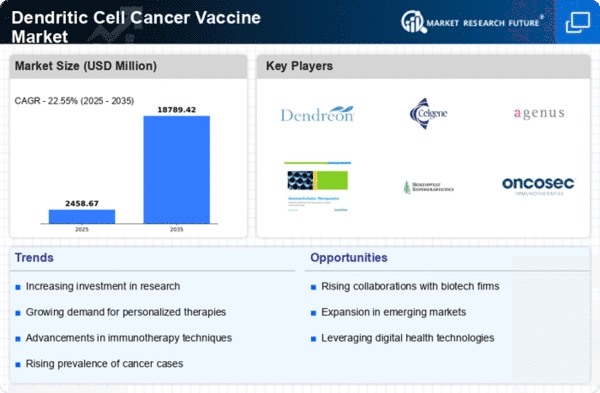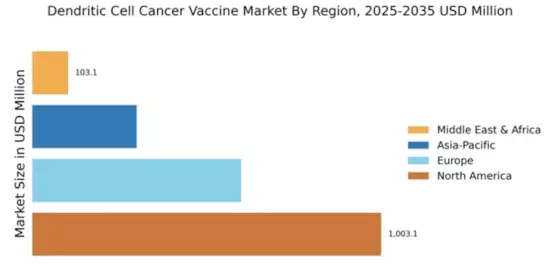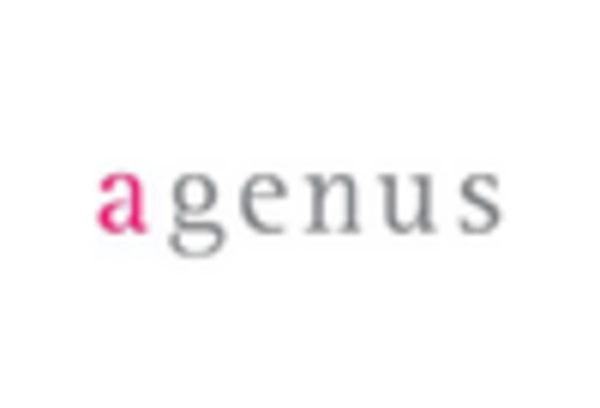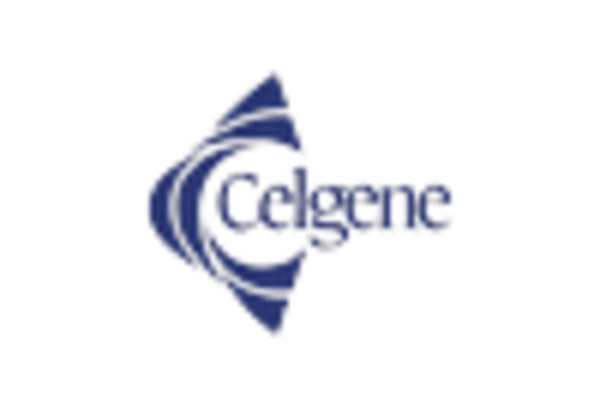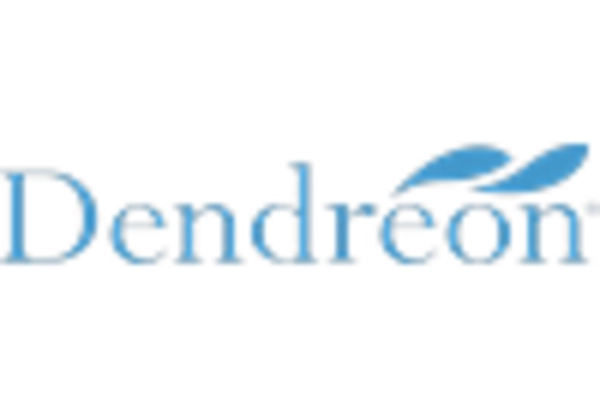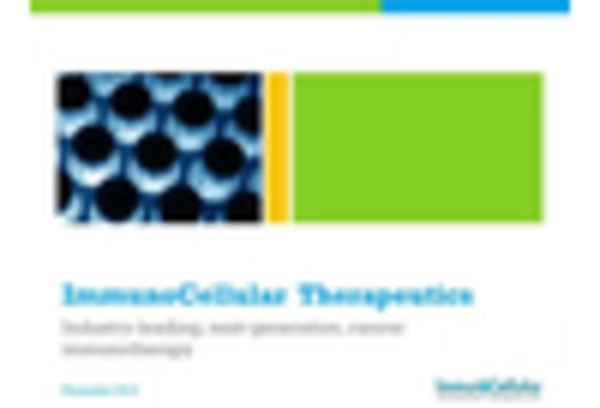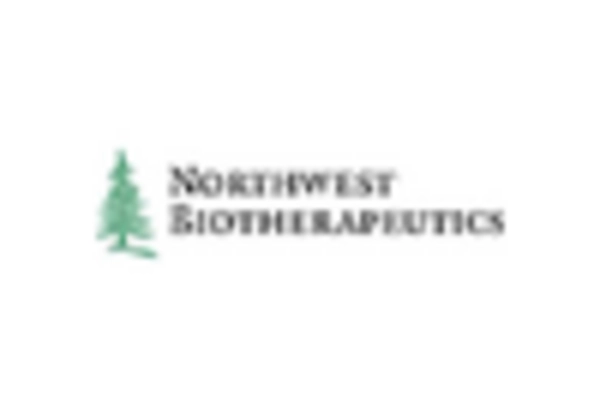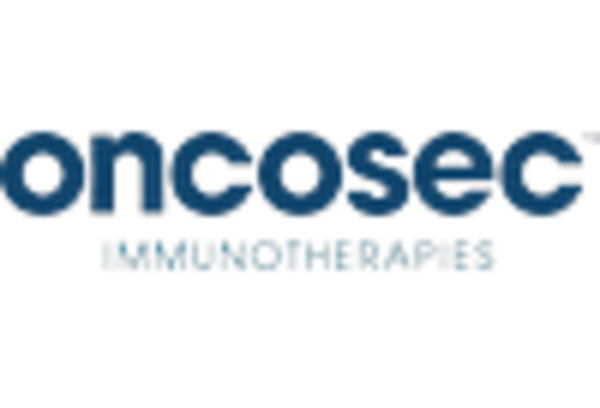Market Growth Projections
The Global Dendritic Cell Cancer Vaccine Market Industry is projected to experience substantial growth, with estimates indicating a market value of 2.01 USD Billion in 2024 and a remarkable increase to 18.8 USD Billion by 2035. This trajectory suggests a compound annual growth rate (CAGR) of 22.53% from 2025 to 2035, highlighting the increasing investment and interest in dendritic cell vaccines as a promising cancer treatment. The anticipated growth reflects the convergence of technological advancements, regulatory support, and rising cancer incidence, positioning dendritic cell vaccines as a pivotal component of future cancer therapies.
Rising Incidence of Cancer
The Global Dendritic Cell Cancer Vaccine Market Industry is experiencing growth driven by the increasing incidence of various cancer types worldwide. According to the World Health Organization, cancer cases are projected to rise significantly, with an estimated 19.3 million new cases in 2024. This alarming trend necessitates innovative treatment options, including dendritic cell vaccines, which are designed to enhance the immune response against tumors. The urgency for effective cancer therapies is underscored by the projected market value of 2.01 USD Billion in 2024, indicating a robust demand for dendritic cell-based immunotherapies.
Advancements in Immunotherapy
Technological advancements in immunotherapy are propelling the Global Dendritic Cell Cancer Vaccine Market Industry forward. Innovations in vaccine development, such as the use of personalized dendritic cells, are enhancing the efficacy of cancer treatments. These advancements allow for tailored therapies that can adapt to individual patient profiles, potentially improving outcomes. The market is expected to grow substantially, with projections indicating a value of 18.8 USD Billion by 2035. This growth reflects the increasing recognition of immunotherapy as a viable treatment option, further driving investments in dendritic cell vaccine research and development.
Supportive Regulatory Framework
A supportive regulatory framework is fostering growth in the Global Dendritic Cell Cancer Vaccine Market Industry. Regulatory bodies are increasingly approving dendritic cell vaccines, recognizing their potential in cancer treatment. For instance, the U.S. Food and Drug Administration has expedited the approval process for several dendritic cell-based therapies, which encourages pharmaceutical companies to invest in this area. This regulatory support is crucial as it not only enhances market confidence but also accelerates the availability of innovative treatments to patients. As a result, the market is poised for significant expansion, with a projected CAGR of 22.53% from 2025 to 2035.
Growing Awareness and Acceptance
Growing awareness and acceptance of dendritic cell vaccines among healthcare professionals and patients are driving the Global Dendritic Cell Cancer Vaccine Market Industry. Educational initiatives and outreach programs are informing stakeholders about the benefits of dendritic cell-based therapies, leading to increased adoption in clinical settings. As more oncologists recognize the potential of these vaccines to improve patient outcomes, the demand for dendritic cell cancer vaccines is expected to rise. This trend is indicative of a broader shift towards personalized medicine, which is likely to sustain market growth in the coming years.
Increasing Investment in Cancer Research
The Global Dendritic Cell Cancer Vaccine Market Industry is benefiting from increased investment in cancer research. Governments and private entities are allocating substantial funds to explore novel cancer therapies, including dendritic cell vaccines. This influx of capital is facilitating clinical trials and research initiatives aimed at validating the effectiveness of these vaccines. For instance, various national cancer institutes are collaborating with biotech firms to advance dendritic cell vaccine technologies. Such partnerships are likely to enhance the scientific understanding of these therapies, ultimately leading to improved treatment options and a more robust market presence.


